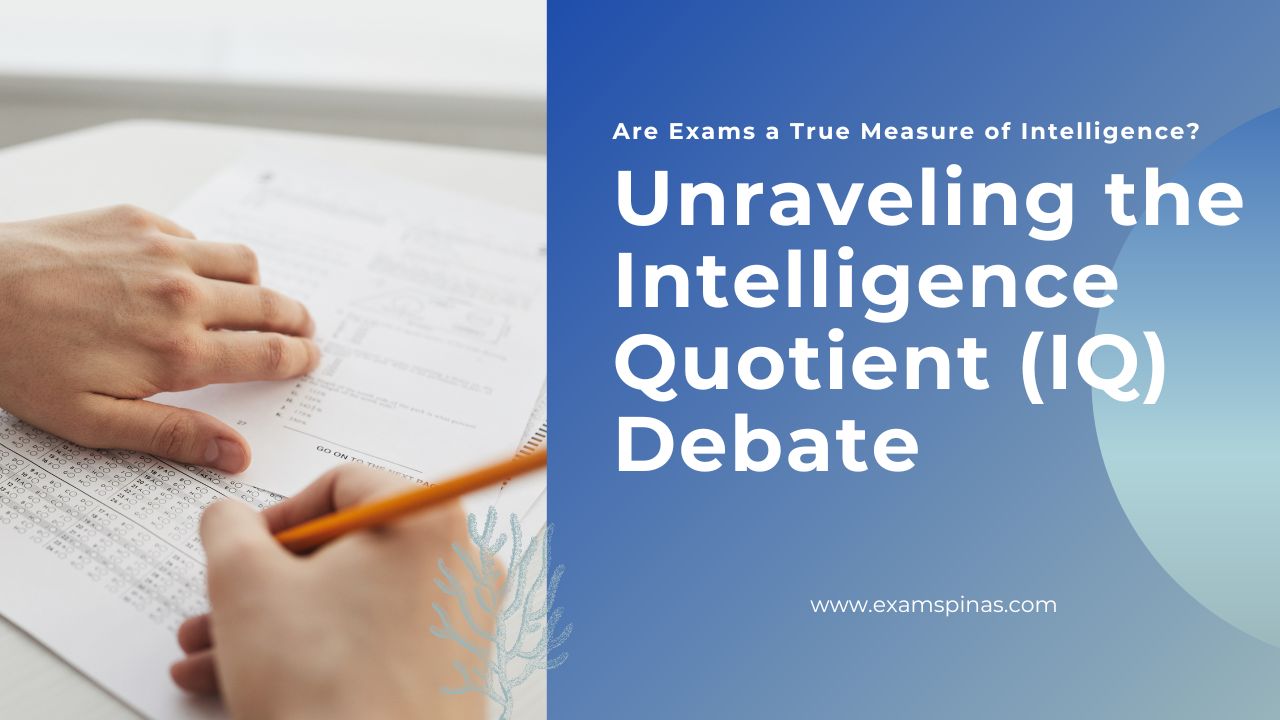In the realm of education, the debate surrounding the correlation between traditional exam performance and intelligence has been a subject of ongoing discussion. As students navigate the academic landscape, the question persists: Do exams genuinely serve as an accurate measure of one’s intellectual capabilities, or is there more to the story?
The Traditional Paradigm: Exams as a Yardstick
Exams have long been considered the standard method for evaluating a student’s comprehension, memory retention, and problem-solving skills. The conventional belief is that a high score indicates a high level of intelligence, while a lower score implies the opposite. This paradigm, rooted in the traditional education system, assumes that exam results align with one’s overall intellectual prowess.
Unraveling the IQ Quandary
The Intelligence Quotient (IQ) test, a standardized assessment designed to measure human intelligence, often becomes entwined with the exam debate. While IQ tests claim to provide a comprehensive measure of cognitive abilities, their ability to capture the full spectrum of human intelligence is a subject of skepticism.
Cultural and Contextual Bias
Critics argue that both traditional exams and IQ tests may carry inherent cultural and contextual biases. The content of exams, influenced by cultural perspectives, might favor certain demographics over others. Similarly, the design of IQ tests may inadvertently privilege specific cultural and linguistic backgrounds, affecting the perceived intelligence of individuals from different contexts.
Multiple Intelligences Theory
Advocates for diverse learning styles propose the Multiple Intelligences Theory, suggesting that intelligence encompasses a broader spectrum of abilities than traditional exams acknowledge. Howard Gardner’s theory posits that individuals possess varying types of intelligence, including linguistic, logical-mathematical, spatial, musical, bodily-kinesthetic, interpersonal, intrapersonal, and naturalistic intelligences.
The Philippine Context: Exam-Centric Culture
In the Philippines, where the education system places a strong emphasis on exams as a primary mode of assessment, the debate gains particular relevance. The pressure to excel in exams permeates every academic level, from primary education to tertiary institutions. But does a stellar exam record truly encapsulate the intellectual richness of Filipino students?
Moving Beyond Exam Scores: Holistic Evaluation
As the discourse unfolds, educators and policymakers in the Philippines are considering a shift toward holistic evaluation methods. This approach acknowledges the multifaceted nature of intelligence and seeks to measure creativity, critical thinking, emotional intelligence, and practical skills alongside academic achievements.
The Quest for a Balanced Evaluation
In the pursuit of an equitable and effective education system, the Philippines, like many other nations, faces the challenge of redefining the role of exams in assessing intelligence. While exams may capture certain cognitive abilities, they fall short of providing a holistic view of an individual’s intellectual capacities. As the education landscape evolves, the quest continues for a balanced and comprehensive evaluation framework that goes beyond the confines of traditional exams.
In navigating this debate, Filipino students, educators, and policymakers stand at the forefront of shaping an education system that nurtures diverse intelligences and fosters a deeper understanding of true intellectual capabilities.

